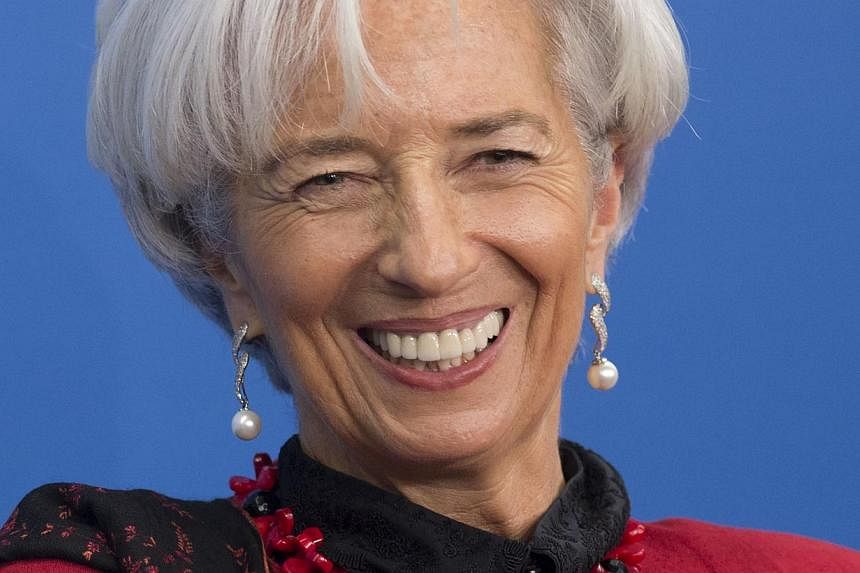While low oil prices and strong US numbers have left the global economy in better health in recent months, International Monetary Fund managing director Christine Lagarde said that governments still need to take strong action to combat the prolonged period of "mediocre" growth.
Speaking at the Atlantic Council in Washington ahead of the annual IMF spring meetings next week, Ms Lagarde painted a mixed picture of the global economic landscape.
On the bright side, she noted that macroeconomic risks have decreased since the fund's last annual meeting in October.
"The global economy has benefited from a shot in the arm provided by reduced oil prices and by the strong performance of the world's largest economy, the United States," she said.
But she warned that financial and geopolitical risks have risen.
For instance, she raised concerns that world financial systems could be in for a "bumpy ride" once the US Federal Reserve raises its interest rates - a move analysts speculate could take place as soon as the middle of the year.
Said Ms Lagarde: "We also have to contend with a structural decline in market liquidity. This is due primarily to recent changes in the structure of the asset management industry in advanced economies, which have created a mismatch in the maturity of assets and liabilities. This means that liquidity can evaporate quickly if everyone rushes for the exit at the same time - which could, for example, make for a bumpy ride when the Federal Reserve begins to raise short-term rates."
The recent sharp swings in foreign exchange rates also threaten to add further woes to businesses that have to simultaneously struggle with a strong US dollar, lower commodity prices and higher borrowing rates.
And while she noted that overall growth, which hit 3.4 per cent last year, has not been bad, the performance was nowhere near good enough given the lingering impact of the global financial crisis.
She was especially concerned about medium-term prospects, noting that countries have not undertaken enough reforms to tackle the lag in productivity growth that comes with an ageing population and lower labour force growth.
"Six months ago, I warned about the risk of a "new mediocre" - low growth for a long time. Today, we must prevent that new mediocre from becoming the 'new reality'. We can do better. We must do better," she said.
In a wide-ranging speech, Ms Lagarde also reiterated her calls for the US to finally ratify the 2010 IMF quota reforms. Until the US does so, the fund is forced to rely on ad hoc loans for operating funds.
Some US lawmakers object to the reforms - which give a larger say to emerging economies - because they fear it will dilute US influence on the world body.
"Emerging markets and developing countries must have greater weight and voice in global economic institutions - to reflect the new reality of their contributions and responsibilities regarding the global economy. The IMF's 2010 quota and governance reform is intended to help meet that objective. Virtually our entire membership agrees and we now only await ratification by the US Congress. It is overdue, but we are not giving up and our membership is currently considering interim steps that can take us closer to the ultimate objective," she said.
The IMF chief said that the fund is considering measures like enhancing cooperation with other funds like the new China-led Asian Infrastructure Investment Bank (AIIB) and increasing the role of an IMF issued asset known as special drawing rights.
The US has come under fire, not just for its failure to ratify the quota reform but also its opposition to the AIIB.
Former Treasury Secretary Larry Summers wrote in an op-ed this week that the past month may be remembered as the moment the US "lost its role as the underwriter of the global economic system".
Asked about those remarks, Ms Lagarde said: "If he is right, I think the best response is to ratify the reform of the IMF."
She said the AIIB is a great initiative and it reflects the transformation of the global economy with new key players.
During the question-and-answer session that followed her remarks, she also confirmed that Greece had repayed its loan installment that was due today.
"Yes, I've got my money back," she said.


